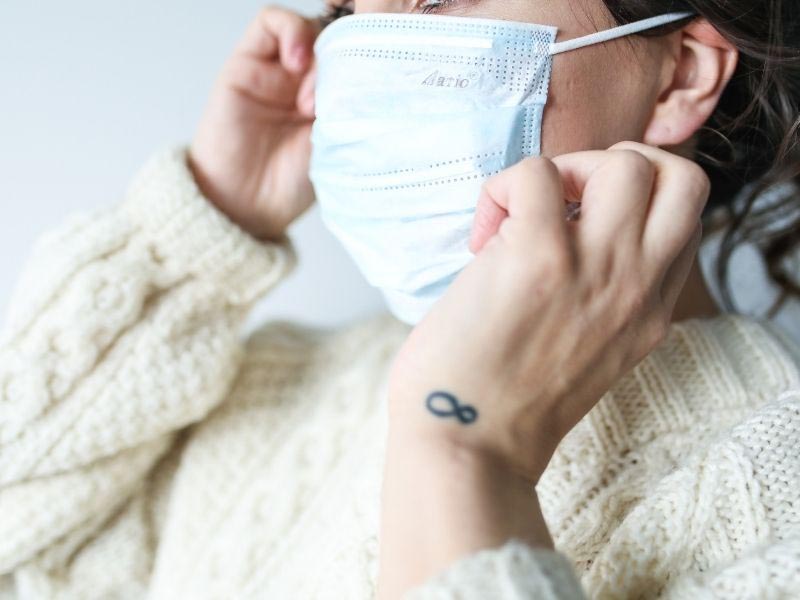Three Laundromat Owners Who Have Adapted – And Continue to Thrive – During the COVID-19 Pandemic
Although the COVID-19 shutdown in March left many businesses out in the cold, laundromats – deemed as providing essential services – motored on, adapted to the changes and overcame obstacles.
Here are a few first-hand accounts from store owners who have benefited from a few unforeseen silver linings of this global pandemic.
Facing the Challenges
As a result of the COVID-19 outbreak, the U.S. and world economies lurched. Businesses faced a slew of challenges all at once – including state shutdown mandates; new disinfection and protective mask protocols; civil unrest, widespread protesting and, in some instances, property destruction and looting; fear among customers and employees; and the often confusing process of applying for and securing much-needed government disaster-assistance funding.
There was uncertainty, fear and, in some cases, violence.
Art Jaeger, who owns multiple laundromats, reflected on the state of affairs in California.
“The rules and circumstances kept changing,” he explained. “In March and April, there was very little information and a lot of fright. We had 10 days of protests on top of COVID-19, with curfews at 6:00 p.m. We experienced hurdles with supply chain interruptions, obtaining sufficient personal protective equipment, having employees adopt new sanitization protocols, putting store safety signs and floor stickers in place, negotiating with landlords and banks, obtaining government loans, and encouraging customers to wear masks and socially distance.”
Nevertheless, Jaeger and his laundry business weathered the storm and prevailed.
“In April, we suffered our biggest decrease in business,” he said. “Then, we increased 8 percent in May, another 2 percent in June, and an additional 3 percent in July.”
While California was hit hard on multiple fronts, Indiana wasn’t – as least not Mooresville, where Pepper’s Express Laundry Center is located.
“To be honest, the pandemic has had a minimal impact on the overall business,” noted Pepper’s owner Jim McNutt. “We are fortunate to have a few advantages during these times, among them the fact that self-service laundries are classified as essential businesses – allowing us to remain open – and our being located in a rural area where independence and personal freedoms are not taken lightly. Our overall numbers were steady as usual through March. In April, we saw an overall drop of 1 percent in sales. From May on, our numbers returned to normal.”
In Houston, where Rob Maes owns four laundromats, commercial business is down.
“We press a lot of sheets for small hotels, but that side of the business is reduced by half,” he explained.
To overcome this challenge, he now offers a residential pickup-and-delivery service.
“When compared with commercial work, home pickup-and-delivery results in more headaches and competitors,” Maes said. “It’s not as profitable, but nevertheless, we are working to build that side of the business.”
In general, Maes reported that his stores located in low-income neighborhoods have held up the best, because the customers don’t have washers and dryers at home. By contrast, his laundries in high-income markets are down in revenue by about 20 percent.
Obtaining Paycheck Protection Program loans proved difficult as well, according to Maes and Jaeger. This involved getting in touch with a lender willing to accept the PPP application in the first place. Many financial institutions weren’t getting into the PPP game, due to their inability to dedicate labor hours to the task. And, once applicants figured out how to get their applications submitted, those applications often took a while to fund.
Of course, it hasn’t been easy to maintain and retrain employees.
“Keeping attendants on the payroll was our biggest challenge,” McNutt admitted. “During this pandemic, many people have been unstable within their own lives. Some attendants have allowed the stress of the times to negatively affect their ability to offer the customer service we expect, so we have had to cut ties.”
Moreover, most employees were expected to adhere to new, more stringent sanitization, masking and physical distancing requirements within the stores.
Taking on Tough Times
Despite these formidable obstacles, Jaeger, McNutt and Maes maintain that their businesses are on the upswing, thanks to features that set their stores apart – including sanitizing ozone injection and the ability to provide multiple services. Both McNutt and Jaeger feature ozone systems and are delighted by its benefits.
Jaeger’s washers have been designed to work seamlessly with ozone systems, which is a big plus, especially during times like these, according to the veteran operator. Jaeger has ozone sanitization as an “extra rinse” option on all of his Continental washers’ ProfitPlus controls. At his store that was most recently retrofitted with ozone technology, 40 percent of the customers selected the ozone rinse option during the first month.
“We now have ozone in all four of our stores,” Jaeger stated. “We are seeing increases in customer usage – they’re telling us that they’re pleased with our overall effort at sanitizing the store and their clothes. Cleanliness is important at this time, and I think the ozone has greatly helped our pickup-and-delivery business, as well as our walk-in traffic. We’ve received many five-star reviews on the cleanliness of the store and freshness of the clothes. Our customers appreciate that kind of environment.”
McNutt agrees.
“We made the decision early on to include ozone at no additional charge, so as to be a differentiator between our store and our competitors,” he explained. “This proved to be a wise choice. Our customers appreciate the fact that we invested in their well-being, as well as in our store’s cleanliness. We’re constantly told how nice the store smells. Ozone is the reason.”
However, equally important are the laundries’ services. Through more services, the owners generate multiple revenue streams that help balance each other out during tough times.
Beyond his self-service business, Maes also offers drop-off wash-dry-fold and commercial laundry services. However, because the commercial segment of his business is currently down, he has strengthened his efforts on the residential side. From his laundry hubs, he is positioned to build this new revenue stream without reinventing the wheel. Once the hospitality industry recovers, Maes expects to benefit from them all in terms of revenue and profit.
From the onset of the COVID-19 outbreak, Jaeger maintains that his residential pickup-and-delivery business has surged.
“We immediately had 25 percent more new customers signing up, and it hasn’t stopped,” he said. “We had a strong July, then added 14 new customers in the first five days of August.”
Although Jaeger’s drop-off wash-dry-fold business was down during these periods, those numbers quickly rebounded to 100 percent.
“Overall, business is at 90 percent of where we were,” he said.
And he anticipates a full recovery.














LIKE READING…THANKS